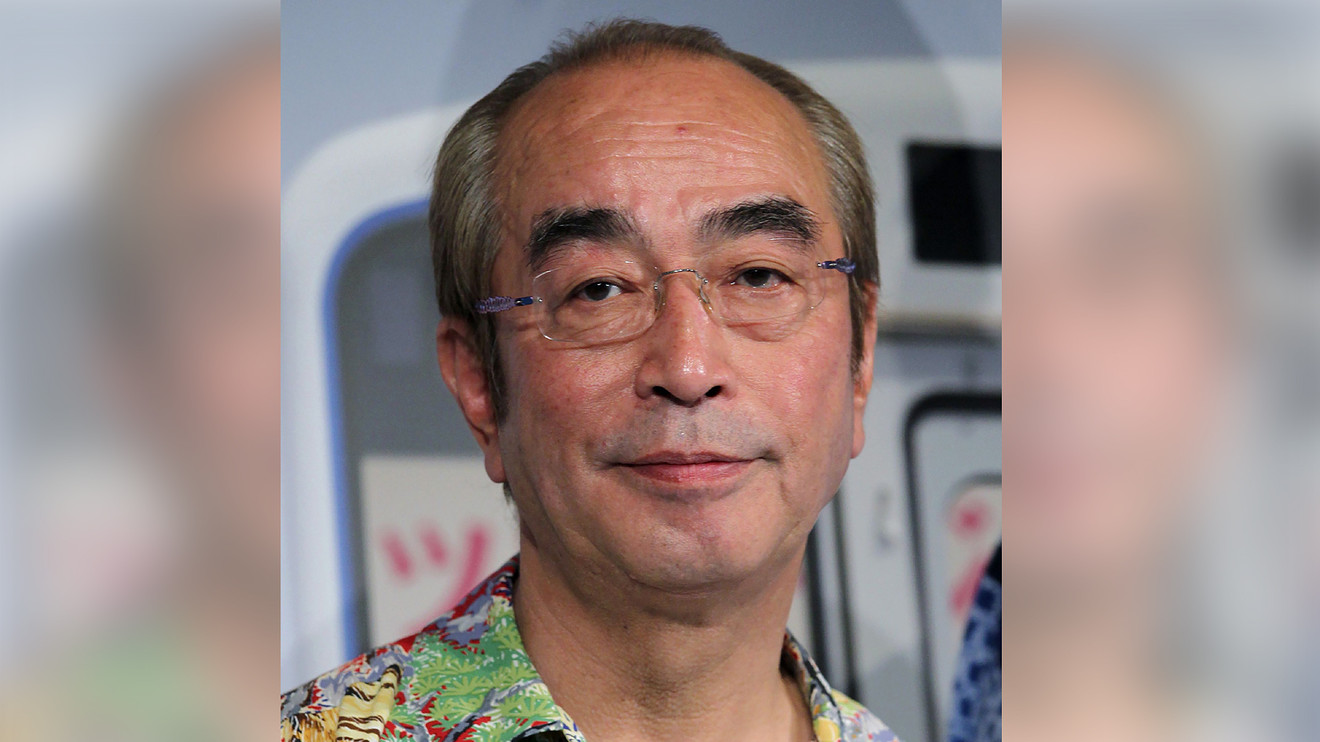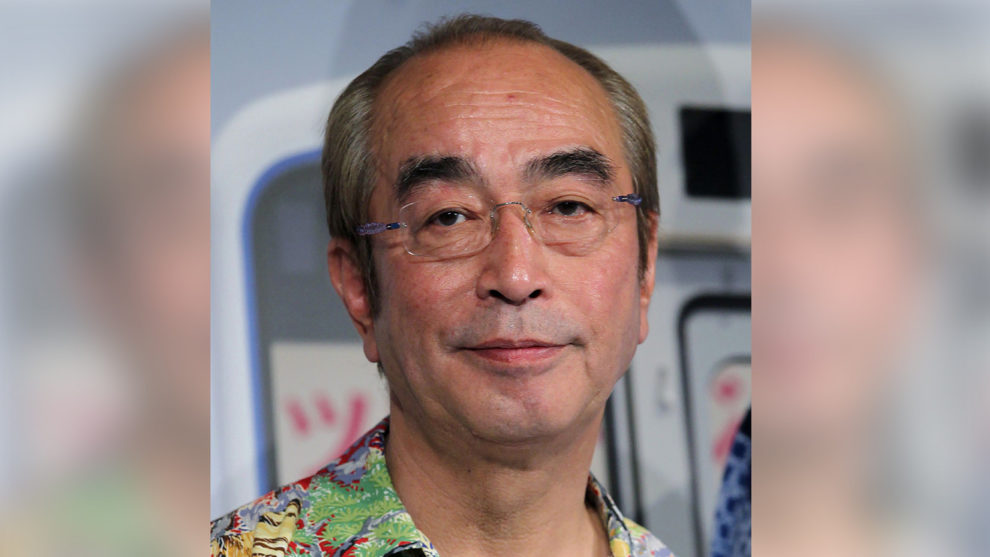
A household name in his native Japan, Ken Shimura’s popularity bridged generations. The comedian was a constant fixture on Japanese television for the better part of five decades, rarely straying from his crowd-pleasing brand of comedy skits. Yet despite the outlandish nature of his most famous characters — the rubber-faced funnyman was sometimes referred to as “Japan’s Robin Williams — he was known to be somewhat shy and quiet when not performing.
Shimura’s half-century run as one of Japan’s most recognizable comedians ended March 29, when he died at the age of 70 due to pneumonia caused by COVID-19. Upon being admitted to a Tokyo hospital on March 20 after developing a fever and experiencing respiratory problems, Shimura was diagnosed with severe pneumonia; a day later, he was put on a ventilator and never regained consciousness. On March 23, it was announced Shimura had tested positive for COVID-19, thus becoming the first prominent Japanese entertainment figure to be diagnosed with the virus.
“I don’t think he imagined he would die a death like this. I am sure he was working hard with his sense of mission to deliver laughter to people,”” said a representative of Izawa Office, Shimura’s talent agency. “I hope you will remember him and laugh. Until the end, he was committed to presenting laughter to the people.”
Born Yasunori Shimura on Feb. 20, 1950, in Higashimurayama, Tokyo, Shimura’s comedic aspirations grew after seeing his father, a strict judo instructor, being captivated by televised comedy shows. After completing his education, Shimura went on to join one of Japan’s most famous comedy groups, The Drifters, in 1974. (The outfit, which started as a rock-n-roll band a decade earlier, achieved lasting notoriety in June of 1966, when it served as the opening act for the Beatles’ first-ever Japan performance at Tokyo’s famed Budokan arena.)
Shimura joined after The Drifters had shifted their focus to comedy and became a prime-time TV sensation with Hachijidayo Zen’inshūgō! (“It’s eight o’clock! Everybody get together!”), which ran from 1969 to 1985. One of the most beloved variety shows in Japanese history, Hachijidayo drew record-high ratings—at its peak, roughly 50% of the country’s TVs tuned into the program—thanks to a brand of slapstick, lowbrow humor that made it especially popular with children, much to the dismay of parents. (Many considered it the Japanese counterpart to “The Benny Hill Show.”)
Soon after he began playing guitar in the group, Shimura developed his acting skills with the other members, and it wasn’t long before he demonstrated a gift for comedy. Shimura’s youthful energy helped The Drifters achieve new heights; in interviews, he referenced the Marx Brothers and Jerry Lewis as inspirations. His emotive style, in which he utilized exaggerated bodily movements and facial expressions, helped him appeal to non-Japanese audiences as well. (Shimura was particularly famous for his Chaplin-esque “mustache dance.”)
After Hachijidayo ended, The Drifters disbanded but continued to get together for occasional specials. In 1986, Shimura teamed up with fellow Drifter Cha Kato for the series Kato-Chan Ken-Chan Gokigen TV (“Fun TV with Kato-Chan and Ken-Chan”), which enjoyed a successful run until 1992.
The program included a segment in which viewers were encouraged to submit amusing video clips from their home movies, an idea conceived by Shimura. This format was introduced to American viewers by ABC when it launched America’s Funniest Home Videos in 1989.
Shimura’s comedy skits and recurring characters managed to keep him firmly entrenched in the national consciousness on either side of the 1989 changeover from Japan’s Shōwa Era to the Heisei Era. Among his most memorable characters were the wildly popular Baka Tonosama (“stupid lord”) and Henna Ojisan (“strange uncle”), both of whom remain firmly entrenched in the minds of Japanese comedy fans.
In 2006, Shimura launched his own comedy theater, Shimurakon (“Shimura spirit”), while 2007 saw him gain new fans by hosting Tensai! Shimura Doubutsuen (“Genius! Shimura Zoo”), a weekly prime-time animal show in which he shared the spotlight with dogs and monkeys.
Shimura remained active right up until his passing, starring in numerous TV programs. Though he rarely performed as a conventional actor, prior to his death, Shimura had landed his first starring film role in Kinema no Kamisama (“God of Cinema”), a comedy from the legendary director Yōji Yamada. Shimura was also scheduled to carry the Olympic flame representing his hometown of Higashimurayama during the torch relay for the 2020 Summer Olympics in Tokyo, which were postponed to 2021 due to the virus epidemic.
Soon after the news of Shimura’s passing broke, the surviving members of The Drifters—Cha Kato, 77, Boo Takagi, 87, and Koji Nakamoto, 78—released a statement expressing their grief. “I feel hatred for the coronavirus that took away the life of The Drifters’ treasure, and a Japanese treasure. I want everyone to take his death as something that could happen around you and take care of yourselves,” said Kato. “I wanted to do a skit with you again. I extend my deepest condolences,” added Takagi.
His fame extended overseas, especially to Taiwan, where President Tsai Ing-wen used Twitter to issue a statement thanking Shimura for the “laughter and energy” he brought to the Taiwanese people. On YouTube, his clips have garnered millions of views, with many of his most famous appearances dubbed in multiple languages.
Shimura’s unexpected death sent shock waves throughout Japan as the nation grappled with the global pandemic. News and talk shows offered dedicated coverage to his life and death, with a mix of his contemporaries and much younger celebrities paying tribute while reminding audiences of Shimura’s multi-generational appeal. Groups of fans and media congregated outside the hospital where Shimura died, and a televised tribute on April 1 was viewed by more than 40 million people across his homeland.
A lifelong bachelor, Shimura is survived by two older brothers.











Add Comment